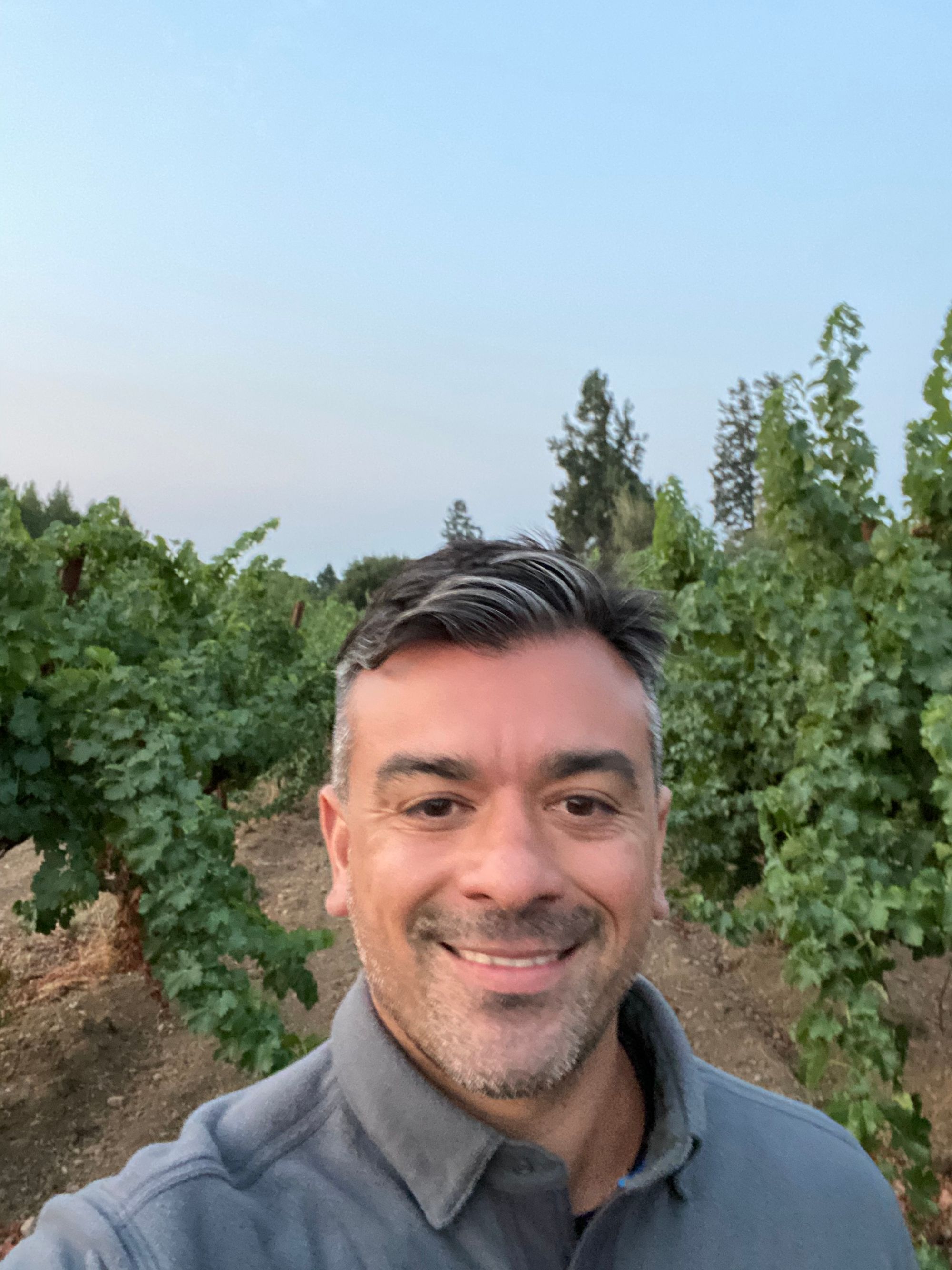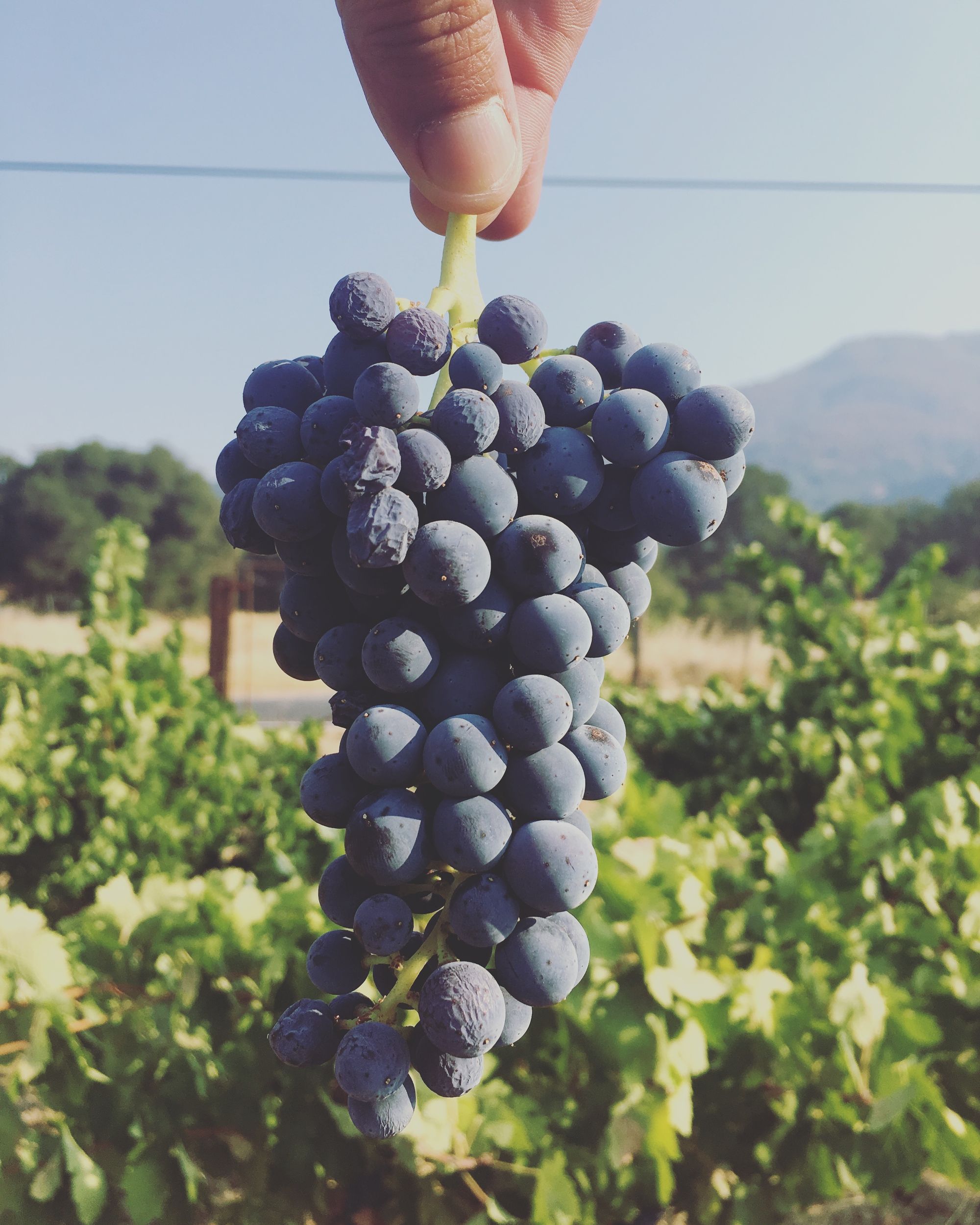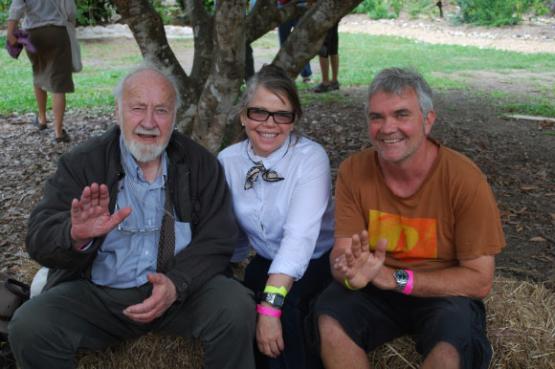
Meet the winemaker: Vinca Minor
5 min read
Vinca Minor is a Berkeley-based winery run by grower and maker Jason Charles, supported by his wife Emily Charles, who runs the programming and events, and their daughter Ava. They work with historic vineyards, with a particular focus on old vine Carignan.
We had the chance to speak with Jason about his work. We hope you enjoy our conversation.

Can you tell me about your background, and how you came to be a winemaker?
I grew up in Lapeer, Michigan which is a small town in the midwest. I didn't grow up with wine - I grew up wanting to become a photojournalist, and that allowed me to travel after my college years. Living in Spain, specifically Barcelona, in my twenties, I was young, and curious and inspired, and even though I had no wine knowledge, I became very interested culturally in what was happening with food and wine in general, and very quickly I realized how important wine was culturally. From there, I moved to New York City to continue pursuing photojournalism, and I ended up in the restaurant industry. There, I think I very quickly realized that I was surrounded with some really, really thoughtful and talented wine professionals and there were a lot of European producers coming into town. I started going to tastings and that's really where I fell in love with wine. My wife and I made a trip to California back in around 2006, in Napa and Sonoma and I think it was then that I realised I wanted to make a career change. I moved to California, got a job in Napa Valley as a production assistant and that's where it began.
How did you go from there to having your own winery?
You know, I was really lucky. There was a gentleman in Napa that I worked with called Luc Morlet, who's originally from Champagne. He was a consulting winemaker in Napa and also had his own estate. I was lucky because I was working on his production team and once in a while, he would send me with his farming team to prune and work in the vineyards, and on other days I'd be with him at a different property where he'd be consulting. Within just a couple of years, I was able to see every side of production, from farming to the cellar, and even going to fairs and selling wine. It sort of expedited the process of of learning very, very quickly and I realised I was able to start making my own decisions and the direction that I wanted to go in one day if I had the opportunity to make my own wine.
Do you have your own vineyards or buy your grapes?
We don't own any vineyards but I have aligned myself with a handful of growers who have been around for generations in Northern California. For example, the old vine Carignan is farmed by Pete Johnson, who is a sixth generation grape grower and he's been organic since day one. He's certified and he just an incredible farmer. He's been doing this for generations, so as a winery, we have aligned ourselves with with growers like Pete and we get access to these incredible grapes and have developed these really special relationships in Northern California, specifically Mendocino.
For us, it's always been about telling the story of some of these incredible vineyards up in Northern California and work incredibly minimally. It's really important for us to tell the story of the growers and to make energetic, bright and fresh wines - whether it's rosé or red, that's our style across the board. We love to explore Mendocino's history, specifically through the lens of Carignan, just very bright and energetic and focused. That's very much our style across the board and but also you know for us, we just love to explore.

Was it a conscious choice to work with more historic vineyards, and old vines for Carignan?
It wasn't initially. It started because I was working in Napa and I knew I was about to start a small wine brand. I was priced out of Napa and I also had no real interest in working with Cabernet. I had a few friends who were already working in Mendocino, with some some old vine Zinfandel and Mourvedre, then some Carignan became available and I had never really worked with it before. And to be honest, very early on my in my career, I had never really had that many 100% Carignans. So there were just a few things that checked the box for me. I had access to vineyards that were probably 100 years old, so to me that right away seemed incredibly special - that I, as a young winemaker, could access these really old grapes. Then on top of that, they were certified organic and I just very quickly connected with the region.
That was where it began, and then over time I realized that working with old vine fruits was just incredible. Here we are in Northern California amongst all this history. A lot of these vineyards were planted in the late 1800s and still farmed by the same family. I fell in love with the Carignan, the fruit and the vineyards, and every year we've just been kind of digging in a little bit further, exploring more and learning more. And it's really just trying to tell the story.
What's the natural wine scene like in California, and how have you seen it evolve?
What's happening right now in Northern California is truly exciting. It feels like it just keeps growing, and the community just keeps getting stronger and stronger. When I launched Vinca Minor back in 2013, I don't really think there was a whole lot of discussion around natural wine. Of course, there was Tony Coturri as early as the 1970s, and a few other producers, but it still felt very underground and very niche. Fast forward to 2023, and this past weekend I was able to present my wines at a really incredible, thoughtful wine fair up in Sonoma called Big Wine Fest up in the Redwoods and I was surrounded by natural winemakers. A lot of them were just beginning their kind of their winemaking journey and making a couple hundred cases. The natural wine scene is really growing.
Are you seeing any impact from climate change in the work that you do?
Over the past few years in California in general, there's there's been a lot of fires and I think we are going to keep having to deal with that. Some years are going to be pretty mellow, and other years are going to be a little bit more intense, and that will help us change our picking decisions and the way we choose to ferment. And we are starting to work with other fruits, like apples and pears. I feel like we just have to keep evolving. I don't think any of us are going to leave California. We absolutely love it here and, at the end of the day, the quality of life and the history of the vineyards will allow us to continue to make wine. It's just about adapting.
What's the meaning of the name, Vinca Minor?
Vinca Minor is the Latin translation for the flower periwinkle, which is this really pretty purple flower. And the words Vinca Minor felt very abstract and like I could use it and it mean many things. It gives me a lot of freedom to work within that.
Visit Vinca Minor's RAW WINE profile to learn more about the winery, and discover which RAW WINE fairs they're pouring at soon.


